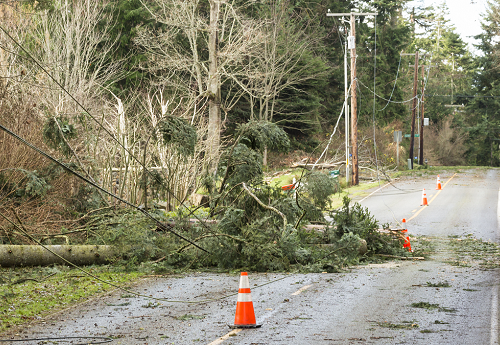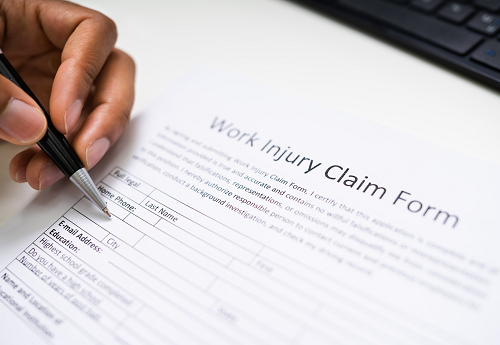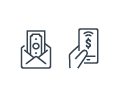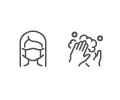Recursos en Español sobre asistencia de desastres.
The U.S. Department of Labor assists recovery efforts in communities affected by severe storms, floods and other disasters.

Contact Us
For general questions and assistance, you can contact us 8 a.m. to 8 p.m. ET using our online form or by calling toll-free: 1-866-487-2365

Income and Job Assistance
If you become unemployed through no fault of your own, you may be eligible for unemployment insurance. States impacted by disasters may be eligible to apply for grant funding.

Staying Safe During Cleanup and Recovery
The Occupational Safety and Health Administration has guidance and resources to help protect workers participating in cleanup and recovery efforts.

Wages
Learn about workers' rights and employers' responsibilities regarding pay in the aftermath of a disaster.

Worker Claims
Find more information for federal employees and workers in the longshore community injured in the line of duty.

Health and Retirement Benefits
Questions about your workplace health or retirement benefits? View disaster relief information for workers and families or for employers and advisors. You can also get help from our benefits advisors by calling 1-866-444-3272 or submitting your question online.
 Income and Job Assistance
Income and Job Assistance
For workers:
- The federal-state Unemployment Insurance Program provides unemployment benefits to eligible workers who are unemployed through no fault of their own. Find your state's unemployment insurance information.
- Disaster Unemployment Assistance provides financial assistance to individuals whose employment or self-employment has been lost or interrupted as a direct result of a major disaster declared by the president and who are not eligible for regular unemployment insurance benefits.
For states:
- States can apply for Dislocated Worker Grant funds, which can be used to create temporary employment opportunities to assist with cleanup and recovery efforts.
 Staying Safe During Cleanup and Recovery
Staying Safe During Cleanup and Recovery
Call OSHA toll-free at 1-800-321-6742 with any questions. Learn how to keep workers safe during cleanup and recovery operations following hurricanes.
Review these OSHA fact sheets on natural disaster recovery:
- Carbon Monoxide Poisoning [PDF] / [En Español]
- Chainsaws [PDF]
- Chipper Machines [PDF]
- Cleanup Hazard [PDF] / [En Español]
- Downed Electrical Wires [PDF]
- Electrical [PDF]
- Falls [PDF] / [En Español]
- Flood Cleanup [PDF] / [En Español]
- Mold [PDF] / [En Español]
- Portable Generators [PDF]
- Personal Protective Equipment [PDF] / [En Español]
- Preventing Carbon Monoxide Poisoning While Working with Portable Generators [PDF] / [En Español]
- Roof Tarping [PDF] / [En Español]
- Tree Trimming [PDF]
- Vehicle Safety [PDF] / [En Español]
 Wages
Wages
If you have questions about your pay, contact the Wage and Hour Division online or call 1-866-487-9243 with any questions, 8 a.m. to 5 p.m. in your time zone.
- The Service Contract Act, which generally applies to federal or District of Columbia contracts for clean-up activities following a disaster, requires contractors and subcontractors performing services on prime contracts in excess of $2,500 to pay service employees in various classes no less than the wage rates and fringe benefits found prevailing in the locality, or the rates (including prospective increases) contained in a predecessor contractor's collective bargaining agreement.
- Davis-Bacon regulations require federal contractors and subcontractors performing work on contracts in excess of $2,000 to pay their laborers and mechanics not less than the prevailing wage rates and fringe benefits for corresponding classes of laborers and mechanics employed on similar projects in the area.
- To record hours worked, download the DOL Timesheet App to record the number of hours you have worked and calculate the amount you may be owed by your employer.
- A toolkit that provides essential resources to help workers and employers understand their rights and responsibilities under the Fair Labor Standards Act (FLSA) during natural disasters and recovery efforts.
 Worker Claims
Worker Claims
Our Office of Workers' Compensation Programs offers:
- Online claims filing for federal employees injured during the performance of duty, as well as general information for claimants on the Federal Employees' Compensation Act.
- Claims filing information for workers in the longshore community injured during the performance of duty.
 Additional Resources
Additional Resources
- FEMA.gov
- FEMA resources for people with disabilities
- DisasterAssistance.gov
- USA.gov: Federal resources for disasters and emergencies
- Benefits.gov: Programs relevant to disaster relief
- Information from the CDC on how the COVID-19 pandemic can affect disaster recovery, and what you can do to keep yourself and others safe
- Disaster Distress Helpline: 24/7, 365-days-a-year crisis counseling and support to people experiencing emotional distress related to natural or human-caused disasters
Note: If you live in a disaster declared county, you can register online for disaster assistance at www.DisasterAssistance.gov or call FEMA's toll-free registration line at 1-800-621-3362 (TTY 800-462-7585).
